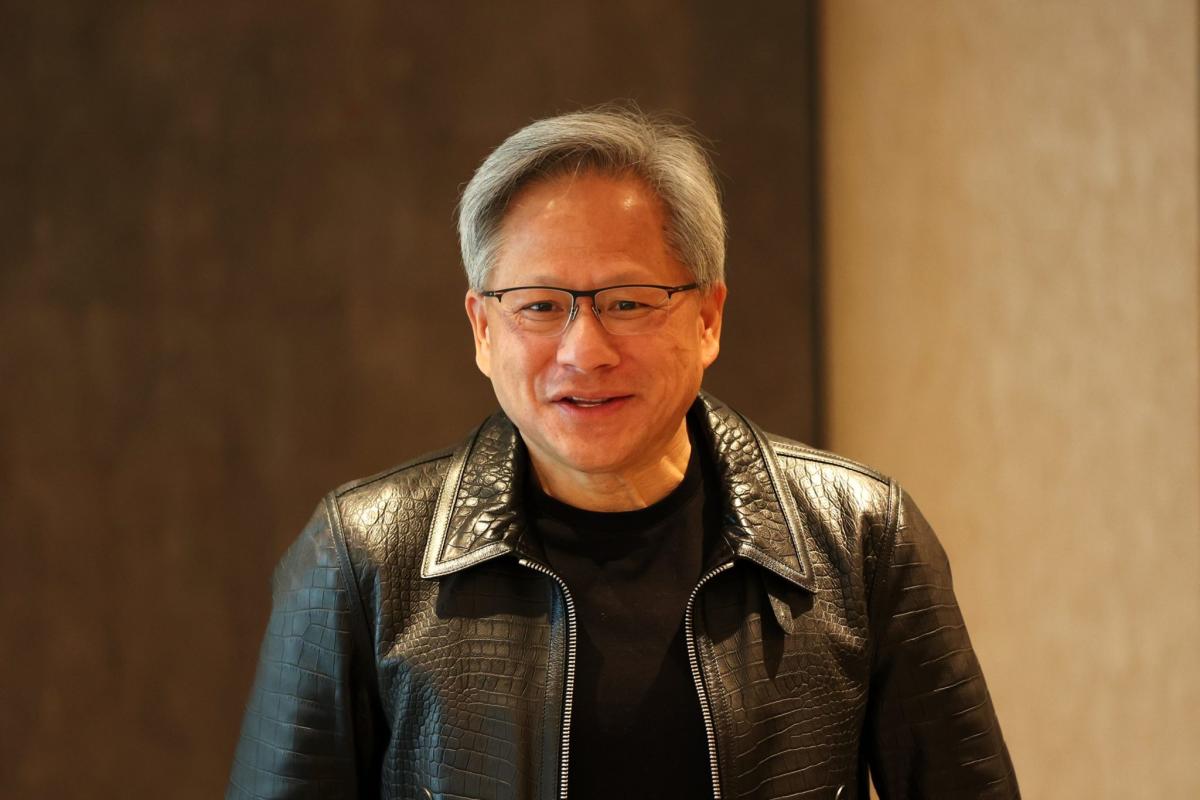The rise of Jensen Huang, the Nvidia CEO who was born in Taiwan, raised in Kentucky, and is now one of the richest men on earth

Hailed as a once-in-a-generation tech visionary, Jensen Huang, CEO of chip manufacturer Nvidia, can add a new feather to his cap: He’s the 24th-richest man in the world. It’s hard to miss the news about his company, the semiconductor manufacturer that has just leapfrogged Google in market cap.
The company’s stock has soared 409% since last year. After its year-end earnings call on Wednesday, Nvidia’s value rose $250 billion in a single day, topping Meta’s $197 billion rise from earlier this month as the largest such daily increase. On its year-end earnings call Wednesday, Nvidia crushed analyst expectations, setting off a frenzy among Wall Street investors and Silicon Valley analysts. Nvidia reported $22.1 billion revenue in the fourth quarter of 2023, roughly $1.7 billion more than expected.
Goldman Sachs just called Nvidia “the most important stock on planet earth.” But who is the man leading the runaway trillion-dollar firm in his signature moto leather jacket?
The electrical engineer and former busboy
Huang, who turned 61 earlier this week, was born in Taiwan and, at age 9, was sent with his brother to live with an uncle in Tacoma. The following year, Huang moved once more, to rural Oneida, Ky., where he lived in an all-boys dorm at the Oneida Baptist Institute—a religious reform academy his uncle mistakenly believed was a boarding school.
Huang’s parents eventually joined him and his brother in the U.S., and the family settled outside Portland, Ore., where Huang went to high school, played competitive tennis, and graduated two years early—at age 16. According to a New Yorker profile from 2023, Huang briefly worked as a dishwasher at Denny’s. He earned his undergraduate degree in electrical engineering from Oregon State University, and then a master’s in the same field from Stanford.
After several years working in engineering, including as a microprocessor designer, Huang cofounded Nvidia in 1993 at another roadside Denny’s in East San Jose—while eating, not serving. Huang was 30 at the time, and he and his cofounders, friends and fellow microchip designers Chris Malachowsky and Curtis Priem, had just $40,000 in the bank between them, but they were armed with a keen sense of what was to come in computing.
“We believed this model of computing could solve problems that general-purpose computing fundamentally couldn’t,” Huang told Fortune in 2017. “We also observed that video games were simultaneously one of the most computationally challenging problems and would have incredibly high sales volume. Those two conditions don’t happen very often. Video games were our killer app—a flywheel to reach large markets funding huge R&D to solve massive computational problems.”
Nvidia quickly grabbed $20 million in VC funding, including from Sequoia Capital, and he’s the rare tech founder who’s remained at the helm of his company steadily since its inception. “I’ve been talking about the same story for 15 years,” Huang said in 2017, to reporter Andrew Nusca. “I’ve barely had to change my slides.”
Leadership philosophy
Huang’s approachability and decency has probably added to his longevity at Nvidia. In 2010, Huang told the New York Times he defines good leaders based on authenticity. “They don’t dress like a CEO because they think that’s what CEOs dress like. They don’t talk like CEOs because that’s the way they think CEOs talk,” he said. “They don’t conduct their meetings and expect people to treat them like CEOs because that’s the way they think CEOs are supposed to be treated. They are just who they are.”
Nvidia’s business has been turbocharged by the AI boom that’s taken over the global tech industry. The company makes many of the critical chips that provide the computing power needed to run the models that underpin AI tools. Nvidia provides the building blocks for what some consider to be among the most significant developments in the history of tech—and it joined the trillion-dollar club last June.
Nvidia’s historic stock rally is perhaps the example par excellence of the old investing adage that to make money in a gold rush one should sell shovels and pickaxes. Nvidia is especially lucky in that it has a seemingly insurmountable lead on the other proverbial shovel-makers.
Unique leadership style
Then there’s Huang himself. Per Fortune’s 2017 profile, the billionaire doesn’t even keep a desk—much less a corner office—opting instead to roam around his building, working in any number of conference rooms he passes. He also has a large arm tattoo resembling his company’s logo, which he got in the mid-2000s on a dare from his staff once the company’s stock price hit $100. (Tattoos and leather jackets are welcome at Nvidia’s offices, where staff tenure is unusually long and bonds are tight-knit.)
Nvidia stock is inching closer to $800 these days, but don’t expect another tattoo on its formidable cofounder-CEO. As he told Fortune’s Nusca in 2017: Getting the company logo on his shoulder made him “cry like a baby.”
This story was originally featured on Fortune.com





